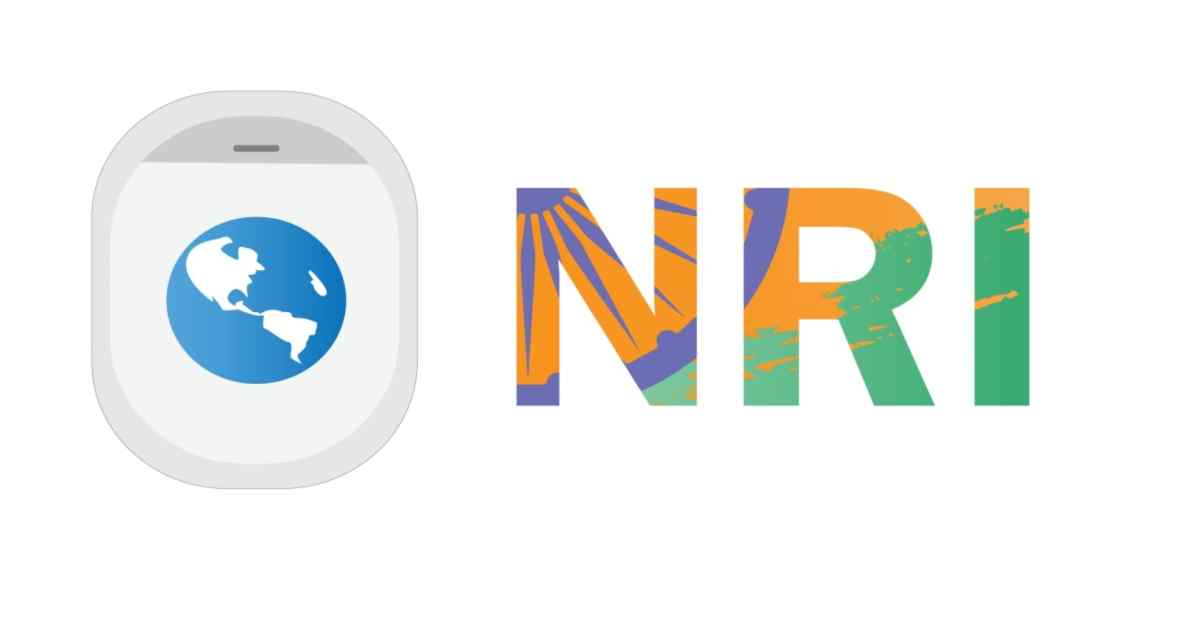Table of Contents
Quality Service Guarantee Or Painting Free

Get a rental agreement with doorstep delivery

Find the BEST deals and get unbelievable DISCOUNTS directly from builders!

5-Star rated painters, premium paints and services at the BEST PRICES!
Loved what you read? Share it with others!


Submit the Form to Unlock the Best Deals Today
Help us assist you better
Check Your Eligibility Instantly

Experience The NoBrokerHood Difference!
Set up a demo for the entire community
Navigating the NRI Home Loan Maze: A Comprehensive Guide
Table of Contents
In today's world, information is at our fingertips, yet the vastness of it can often lead to confusion. When it comes to making substantial financial decisions, the stakes are even higher. A proper understanding and a clear path can make the difference between an informed choice and a regrettable one. Whether you're looking to dip your toes into the financial waters or just here out of sheer curiosity, we're here to shed light on the maze of information.
Introduction to NRI Home Loans
NRI Home Loans are specialised loans offered to Non-Resident Indians (NRIs) wishing to purchase residential property in their home country. Given that NRIs often face challenges in securing property finance due to their non-residential status, many banks and financial institutions have tailored products to cater to this demographic.
These loans usually come with specific eligibility criteria, documentation requirements, and tenures distinct from regular home loans. They may also offer competitive interest rates to attract NRI homeowners. While taking an NRI home loan rate in India, it’s essential to understand the applicable laws, taxation rules, and repatriation regulations, to ensure a smooth property investment back home.
Quality Service Guarantee Or Painting Free

Get a rental agreement with doorstep delivery

Find the BEST deals and get unbelievable DISCOUNTS directly from builders!

5-Star rated painters, premium paints and services at the BEST PRICES!
Deciphering NRI Home Loan Interest Rates in India
Navigating the landscape of home loans for NRI in India can be intricate. With banks like SBI, HDFC, ICICI, Axis Bank, LIC HFL, HSBC, Standard Chartered, and other banks/ NBFCs offering competitive rates, it's essential to compare. Below is a table detailing their current interest rates.
| Bank/ NBFC Name | Interest Rates |
| State Bank of India (SBI) | 9.15% p.a. onwards |
| HDFC Bank | 8.50% p.a. onwards |
| Axis Bank | 10.50% p.a. onwards |
| ICICI Bank | 9.00% p.a. onwards |
| LIC HFL | 8.50% p.a. onwards |
| HSBC | 8.60% p.a. onwards |
| Standard Chartered Bank | 8.75% p.a. onwards |
| Federal Bank | 8.80% p.a. onwards |
| Indian Bank | 8.45% p.a. onwards |
| PNB Housing | 8.80% p.a. onwards |
| South Indian Bank | 9.77% p.a. onwards |
| Indian Overseas Bank | 9.55% p.a. onwards |
| Karur Vysya Bank | 9.23% p.a. -10.73% p.a. |
| DBS Bank | 6.50% p.a. + (up to 3.70%) onwards |
| IDFC First | 8.85% p.a. onwards |
| Canara Bank | 6.85% p.a. onwards |
| YES Bank | 9.35% p.a. onwards |
| Kotak Bank | 6.65% p.a. onwards |
| IIFL Home Loans | 8.80% p.a. onwards |
| Bank of Maharastra | 8.50% p.a. |
Disclaimer: The NR housing loan interest rates in India provided in the table are current as of the date mentioned and are subject to change. Always consult with the respective bank or financial institution for the most up-to-date rates and terms.
NRI Home Loan Eligibility Criteria
Non-Resident Indians (NRIs) and Persons of Indian Origin (PIOs) can apply for home loans in India. The specific eligibility criteria for NRI home loans may vary slightly among different banks and financial institutions. However, the following are the general criteria most commonly considered:
1. Nationality and Status:
- The applicant should be a Non-Resident Indian (NRI) or a Person of Indian Origin (PIO).
- For PIOs, most banks require them to possess a valid PIO card.
2. Age Limit:
- The minimum age is usually 21 or 23 years at the start of the loan.
- The maximum age is typically 60 years or retirement age, whichever is earlier, at the end of the loan tenure. This can vary based on the bank.
3. Employment:
- The NRI applicant must have been employed abroad for a minimum period, usually 2 years.
- Some banks may consider those who have been working abroad for less than 2 years if they had prior work experience in India and have been abroad only for a short duration.
4. Income:
- There's a minimum monthly or annual income criterion. The amount can vary significantly depending on the bank and country of residence.
5. Property-related:
- The property to be financed should be for residential purposes.
- Some banks may have specifications about the type of property, such as it being ready-to-move-in, under-construction, or even for renovating an existing property.
6. Credit Score:
- While an Indian credit score may not be available for NRIs, the credit report or credit score from the country of residence may be required.
NRI Home Loan Documents Required for Application
| Application Form | Duly filled along with an attested passport-sized photograph |
| PAN Card | Mandatory for all financial applicants. |
| Proof of Identity (Submit any one) | PassportAadhaar CardDriving LicenseVoter IDGOI issued Photo IDGovt Employee ID |
| Proof of Address (Submit any one) | Aadhaar CardDriving LicenseVoter IDGOI Issued Photo IDGovt Employee IDBills (Electricity, Gas, Landline Telephone) Property Tax Receipt |
| Date of Birth Proof (Submit any one) | PassportPAN CardAadhaar Card with DOBDriving LicenseBirth CertificateSSC Marksheet |
| Signature Proof (Submit any one) | PassportPAN CardBanker’s verification Notarised affidavit (with ID & Address proof) |
| Proof of Income | The most recent salary slips (usually for the last 3-6 months) to provide evidence of current income.NRE (Non-Resident External) or NRO (Non-Resident Ordinary) account statements for the last 6 months to 1 year.6 month international salary a/c statementA copy of the employment contract can serve as evidence of continuous employment.A copy of your work permit or visa to prove your NRI status and the legitimacy of your overseas employment.Relevant pages of the passport, including the page that contains the visa stamp.Tax returns or a tax assessment order from the country of residence.A credit report from the country of residence.If self-employed, you might need to provide business details, proof of business existence, and relevant financial statements. |
| Property Documents | Title deeds showing the ownership history of the property.Sale AgreementLand Tax ReceiptsApproved Building Plans & LayoutsNOC (No Objection Certificate)Estimate of Property CostOccupancy Certificate (for resale properties)Builder-Buyer Agreement (for new properties) |
| Power of Attorney | If you won't be available in India for executing the property-related formalities, a Power of Attorney might be required in favor of someone you trust in India. This person can execute documents and take decisions on your behalf. This PoA should be duly attested by the Indian consulate in your country of residence. |
Fees and Charges for NRI Loan Interest Rates in India
| Fee Type | Description | Range |
| Processing Fee | Charged by the bank for processing the loan application | 0.25% to 2% of loan amount |
| Legal and Valuation Fee | Covers legal and valuation checks on the property being purchased | 0.5% to 1% of loan amount |
| Stamp Duty | Government tax on property transactions in India (varies by state) | Varies by state |
| Registration Fee | Government fee for registering the mortgage deed | 1% to 2% of loan amount |
| Other Charges | May include insurance premiums, prepayment charges, and late payment fees | Varies |
**Please note that the "Range" column indicates the typical range of fees or rates associated with each category**
Tax Benefits on NRI Home Loans
NRIs (Non-Resident Indians) are eligible for the same tax benefits on home loans as resident Indians. These benefits are available under Section 80C and Section 24 of the Income Tax Act, 1961.
1. Section 80C - Deduction on Principal Repayment:
- Nature of Deduction: Under Section 80C, NRIs can claim a deduction for the principal portion of the home loan repayment.
- Amount: The maximum deduction permissible under this section is Rs 1.5 lakh in a financial year.
- Properties Covered: This deduction is applicable for both self-occupied properties and properties that have been rented out.
- Additional Points: Apart from the principal repayment, NRIs can also claim deductions for amounts paid towards stamp duty and registration fees under Section 80C, within the overall limit of Rs 1.5 lakh.
2. Section 24(b) - Deduction on Interest Payment:
- Nature of Deduction: Section 24(b) provides for a deduction on the interest paid on a home loan.
- Amount:
- For a self-occupied property, the maximum deduction available on interest repayment is Rs 2 lakh.
- However, in the case of a property that has been rented out, there's no upper limit on the interest amount that can be claimed as a deduction.
- But, the overall loss that can be claimed under the head "Income from House Property" is capped at Rs 2 lakh, and any excess loss can be carried forward for set-off in subsequent years.
- Properties Covered: Deduction is available for both self-occupied and rented properties.
Points to Note:
- Joint Home Loans: If the NRI has taken the home loan jointly with another person (e.g., a spouse), then both the loan holders can claim these deductions separately in their individual tax returns, provided both are co-borrowers as well as co-owners of the property.
- Filing Tax Returns: To avail these deductions, NRIs must file an income tax return in India. The benefits can't be adjusted at source but are useful in reducing the total taxable income during the tax filing.
Tools and Calculators: Empowering Your Decision-Making
EMI stands for Equated Monthly Installment and is the fixed amount a borrower pays to the lender on a specific date each month. If you're a Non-Resident Indian (NRI) looking to buy property in India, you may be interested in an NRI home loan EMI calculator.
The EMI amount can be calculated using the following formula:
EMI=P×r×[(1+r) ^ n −1 (1+r) ^n]
Where:
P = Principal loan amount
r = Monthly interest rate (annual rate divided by 12)
n = Number of monthly installments (loan tenure in years multiplied by 12)
Let's break this down with an example.
Say you're an NRI who's taken a home loan of ₹50 lakhs at an annual interest rate of 8% and for a tenure of 20 years.
P = ₹50,00,000 (loan amount)
r = 0.08/12 = 0.00667 (monthly interest rate)
n = 20 x 12 = 240 months (loan tenure in months)
Plugging these values into the EMI formula:
EMI=50,00,000×0.00667× [(1+0.00667)^240/ (1+0.00667)^ 240-1]
This gives an EMI of approximately ₹41,964.
For more precise results or to adjust for variations such as processing fees, it's always a good idea to use a dedicated online EMI calculator or consult with your bank. Many banks and financial institutions have their own online EMI calculators tailored specifically for their loan products.
Market Trends and the Future of NRI Home Loans
The NRI home loan market in India is expected to grow significantly in the coming years. This is due to a number of factors, including:
- The increasing number of NRIs: The number of NRIs is estimated to be over 35 million worldwide. This number is expected to grow in the coming years, as more and more Indians move abroad for work or study.
- The growing Indian economy: The Indian economy is expected to grow at a rapid pace in the coming years. This will lead to higher incomes and increased wealth among NRIs, making them more likely to invest in real estate in India.
- The favorable government policies: The Indian government has introduced a number of policies to attract NRI investment in real estate. These include tax breaks and relaxed foreign exchange regulations.
As a result of these factors, the NRI home loan market is expected to grow at a CAGR of over 15% in the coming years.
Here are some of the key trends in the NRI home loan market:
- Rising demand for home loans: The demand for home loans among NRIs is rising rapidly. This is due to the factors mentioned above, as well as the increasing popularity of real estate investment in India.
- Increasing competition among lenders: More and more lenders are offering home loans to NRIs. This is leading to increased competition and lower interest rates.
- Relaxed eligibility criteria: Lenders are relaxing their eligibility criteria for NRI home loans. This is making it easier for NRIs to qualify for home loans.
- Increased availability of online home loan applications: The availability of online home loan applications has made it easier for NRIs to apply for home loans.
The future of the NRI home loan market looks very bright. The market is expected to grow significantly in the coming years, driven by the factors mentioned above. Lenders are likely to continue to relax their eligibility criteria and offer more competitive interest rates. This will make it easier and more affordable for NRIs to purchase homes in India.
Streamlining NRI Home Loans with NoBroker Home Loan Services
Navigating the complexities of NRI home loans can be daunting. From understanding varied terms to negotiating the best rates, the journey is riddled with challenges. NoBroker Home Loan Services emerges as a beacon for NRIs, enabling them to compare offers from over 20 lenders, ensuring clarity on loan terms, and facilitating the entire application process.
With the added advantage of a dedicated relationship manager and online application features, NRIs can secure competitive rates and enjoy flexible repayment options. Experience seamless home loan acquisition, no matter where in the world you are.

Frequently Asked Questions
Yes, there are some restrictions on the type of property you can buy with an NRI home loan. For example, you cannot buy agricultural land or commercial property with an NRI home loan. However, you can buy residential property, including apartments, villas, and bungalows.
Yes, you can repay your NRI home loan through your NRO or NRE account. However, it is important to note that there are some restrictions on the amount of money you can transfer from your NRO account to India each year.
Yes, it is advisable to assign a Power of Attorney in India for any loan-related tasks, such as signing property documents or making EMI payments on your behalf. To assign a Power of Attorney, you need to execute a power of attorney deed in favor of your chosen representative. The deed must be registered with the sub-registrar's office in the jurisdiction where the property is located.
Yes, you can apply for an NRI home loan jointly with a resident Indian or another NRI. This can help you to increase your loan eligibility and get a better interest rate. However, it is important to note that all co-applicants will be jointly responsible for the loan repayment.
If your income is in a foreign currency, your home loan EMI will be impacted by currency fluctuations. If the Indian rupee weakens against the foreign currency in which you earn, your EMI will increase. Conversely, if the Indian rupee strengthens against the foreign currency in which you earn, your EMI will decrease.
Recommended Reading

Best NRI Accounts in India 2025
December 20, 2024
7914+ views

Loan Against Property for NRI: A Guide to Flexible Financing: Benefits, Eligibility & More in 2024
September 30, 2024
340+ views

Canara Bank Home Loan for NRIs-Eligibility, Features and More
April 19, 2023
1986+ views

Navigating the Process of LIC Home Loan for NRIs
February 1, 2023
2173+ views
Loved what you read? Share it with others!
Most Viewed Articles

Know About ICICI NRI Account: Document Required, Eligibility and Application Process in 2024
October 11, 2024
21188+ views

NRI Power of Attorney: Empowering Overseas Decision-Making
November 28, 2023
9028+ views

Best NRI Accounts in India 2025
December 20, 2024
7914+ views

NRE vs NRO Account: Understanding the Difference for NRIs
April 21, 2024
5748+ views

The Ultimate NRIs Guide to Buying Property in India
July 12, 2017
4288+ views
Recent blogs in
Best NRI Accounts in India 2025
December 20, 2024 by Manu Mausam
Legal Due Diligence for NRIs in Indian Real Estate
December 3, 2024 by Simon Ghosh
Pros and Cons of Pre-Launch Property Investments for NRIs: Key Insights for Smart Investors for 2024
November 26, 2024 by Ananth
How to Sell a Vacation Home or Second Property: A Complete Seller’s Guide for 2025
November 26, 2024 by Priyanka Saha
New Rules for NRI in India: Essential Tax Updates
October 16, 2024 by Priyanka Saha



Join the conversation!